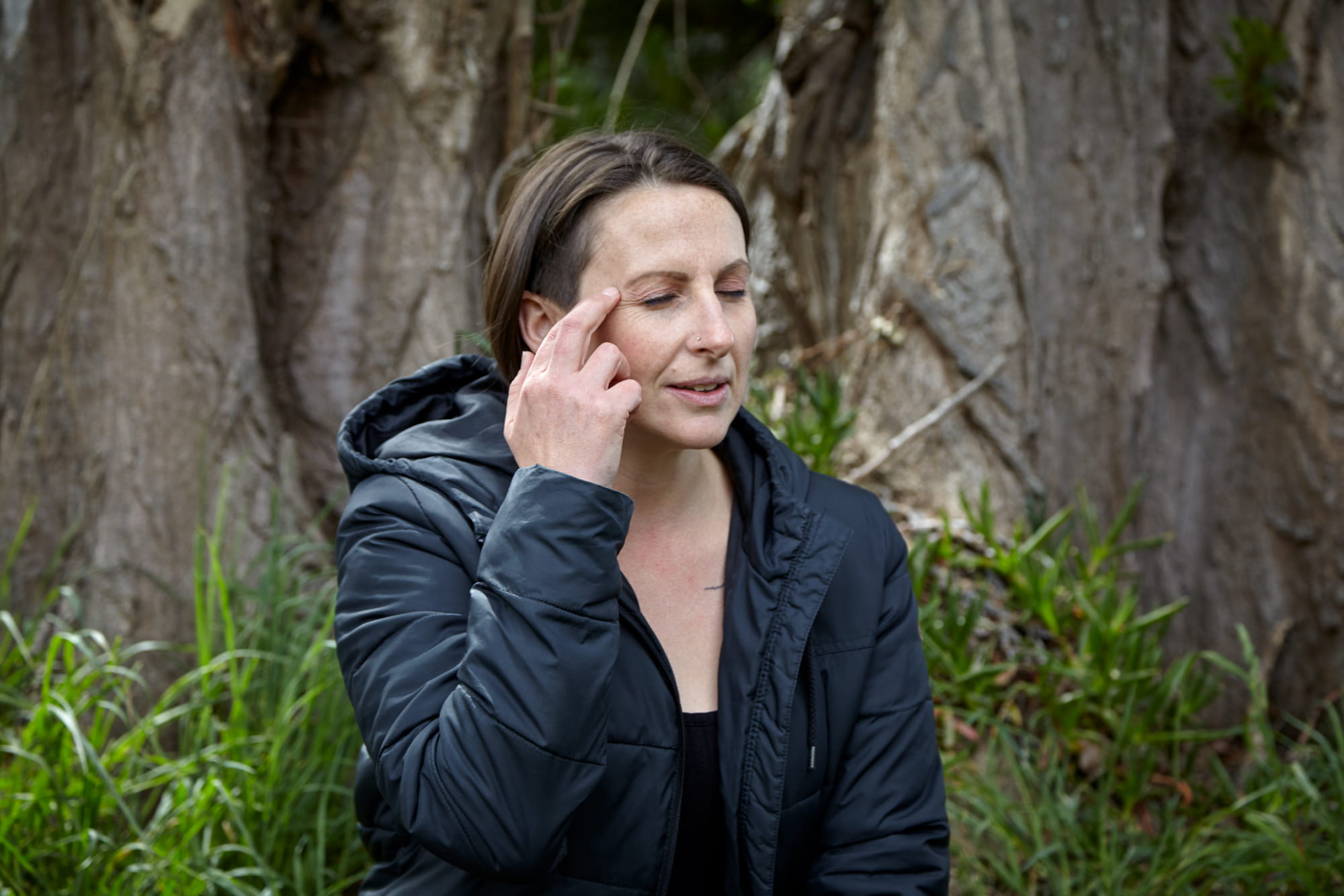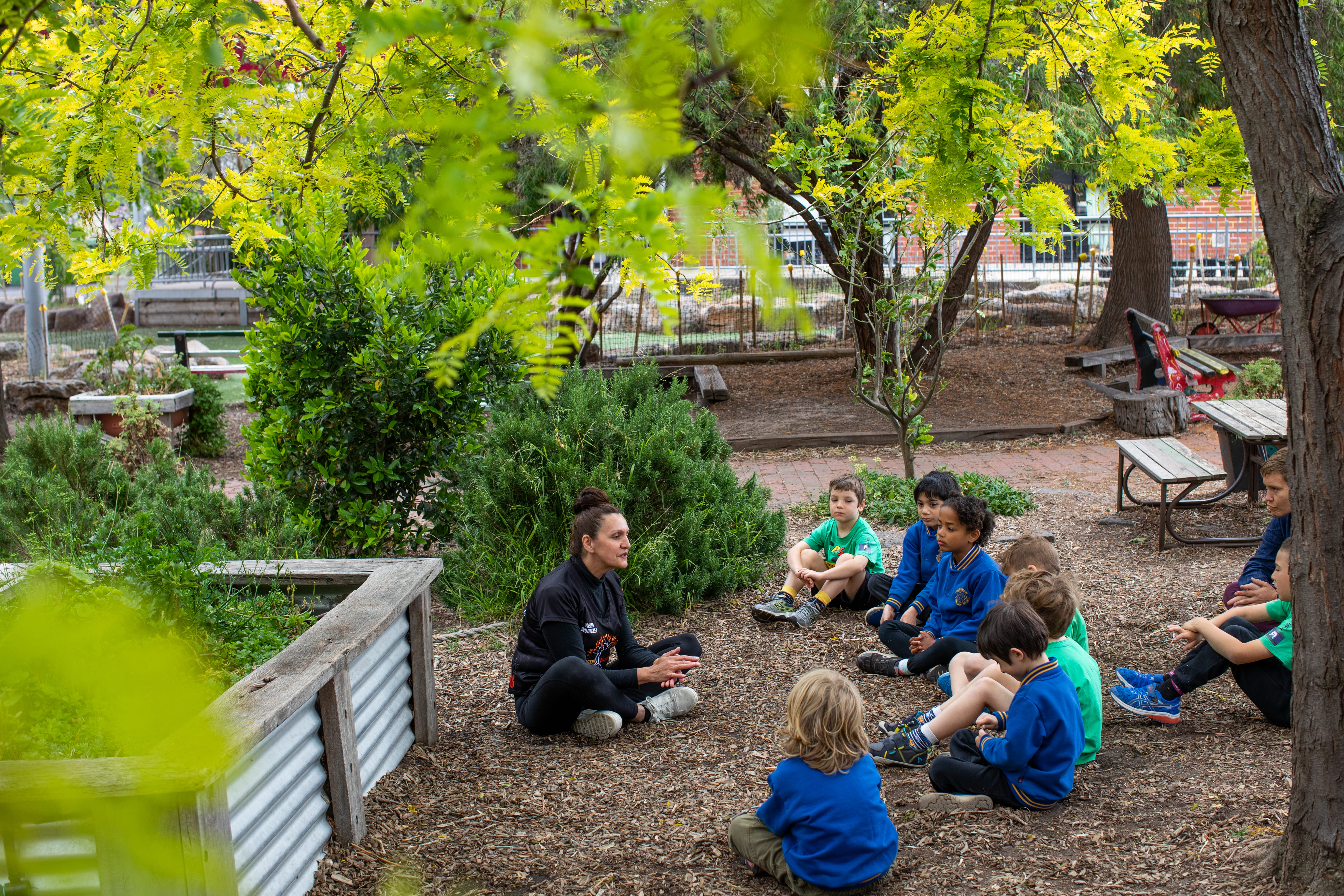On this page
Download this Fact Sheet:
Fact Sheet: Mindfulness (3.1 MB, PDF)
What is mindfulness?
Mindfulness involves training our attention and attitude.
Being mindful is paying attention to the present moment with openness and curiosity. It’s a state that encourages us to slow down, focus on the moment, accept things as they are and act with intention. When we do this, we may find we are able to think more about the here and now. Mindfulness may evoke strong feelings for some people. It’s important to be gentle with yourself about whether mindfulness works for you.
What does it mean to be ‘unmindful’?
To better understand what it means to be mindful, it helps to know what ‘unmindful’ means. When we’re inattentive, distracted and disengaged from the present moment, the mind unconsciously slips into what’s called ‘default mode’ – we’re physically doing one thing, but the mind is somewhere else. For example, someone might be speaking to us, but we’re not listening. We might be reading a book but not taking in the words on the page. A lot of default mode mental activity involves worrying about the past and future. This is one of the main reasons there’s so much default mode mental activity in states like anxiety and depression.
Mindfulness can help us switch off ‘default mode’
It’s a practical way to notice thoughts, physical sensations, sights, sounds, smells, or anything else you might not normally notice. When we focus on the present moment, we switch off default mode. It gets us back on task, helps the body relax and helps us respond to the moment. While mindfulness might sound simple, it may not come easily to us. You may have noticed that the ability to focus on the present moment can come naturally to some children and young people. While we might be hurrying them to get to their early learning service or school on time, they’ll stop to look at butterflies, flowers or bugs. They are in that moment with no worries about the past or future. As adults, however, we’re often thinking about what we need to do next or what we wish we’d done differently.
Mindfulness takes practise
Mindfulness is about consciously choosing where our attention lies, rather than allowing it to be dominated by concerns that distract us from the present moment. It allows us to stay open, curious and flexible about the moment.
What are the benefits?
Mindfulness may have a range of benefits for you.
Mindfulness research has demonstrated that regular practice may support your mental health and wellbeing. You may find it helps you feel calmer. It may bring clarity and enhance your creativity and awareness.
Other potential benefits include:
- reduced rumination (continuously thinking about upsetting situations and things)
- reduced stress, including occupational stress, anxiety and depression
- improved focus and working memory (being able to recall and use relevant information)
- improved health through better immune function (resistance to disease) and slower ageing
- increased self-awareness, social awareness, self-confidence and resilience to cope with pain and life challenges
- greater emotional intelligence, compassion (for yourself and others) and prosocial behaviours\
- better and more flexible problem-solving abilities
- stimulating new connections and cell growth in the brain.
Why should educators consider practising mindfulness?
It can bring present-moment awareness to the learning environment.
The modern world is full of distractions for children and young people, which can make it difficult for them to be present in their relationships with others. Educators are crucial to supporting children and young people’s sense of connectedness. Mindfulness is one strategy educators may choose to enhance this sense of wellbeing.
Providing the option for children and young people to focus on the present moment may benefit them by:
- improving resilience
- increasing their ability to self-regulate emotions through breathing and other grounding techniques. This may help with especially difficult emotions such as fear and anger
- improving empathy and prosocial behaviours
- supporting learning and academic performance, including reducing exam anxiety.
Practising mindfulness may support your wellbeing. It’s also a strategy you can invite children and young people to try in your learning community.
-
Bibliography
Crain, T., Schonert-Reichl, K., Roeser, R. Cultivating teacher mindfulness: Effects of a randomized controlled trial on work, home, and sleep outcomes. Journal of Occupational Health Psychology. 2017 Apr;22(2):138-152. doi: 10.1037/ocp0000043.
Davis, D., & Hayes, J. (2012). What are the benefits of mindfulness. Washington: America Psychological Association. Retrieved from http://www.apa.org/monitor/2012/07-08/ce-corner.aspx.
Donald, J., Sahdra, B., Van Zanden, B. et al. Does your mindfulness benefit others? A systematic review and meta-analysis of the link between mindfulness and prosocial behavior. British Journal of Psychology (2018) DOI:10.1111/bjop.12338.
Flook, L., Goldberg, S., Pinger, L., Bonus, K., & Davidson, R. (2013). Mindfulness for teachers: A pilot study to assess effects on stress, burnout, and teaching efficacy. Mind, Brain, and Education, 7(3), 182-195.
Greenberg, J., Reiner, K., Meiran, N. "Mind the trap": mindfulness practice reduces cognitive rigidity. PLOS One. 2012;7(5):e36206.
Janssen, M., Heerkens, Y., Kuijer, W. et al. Effects of Mindfulness-Based Stress Reduction on employees' mental health: A systematic review. PLOS One. 2018 Jan 24;13(1):e0191332. doi: 10.1371/journal.pone.0191332.
Klingbeil, D., Fischer, A., Renshaw, T., et al. (2017). Effects of Mindfulness-Based Interventions on Disruptive Behavior: A Meta-Analysis of Single-Case Research. Psychology in the Schools. 54. 10.1002/pits.21982.
Kuyken, W., Ball, S., Crane, C., Ganguli, P., Jones, B., Montero-Marin, J., Nuthall, E., Raja, A., Taylor, L., Tudor, K., Viner, R. M., Allwood, M., Aukland, L., Dunning, D., Casey, T., Dalrymple, N., De Wilde, K., Farley, E. R., Harper, J., Kappelmann, N., … Williams, J. M. G. (2022). Effectiveness and cost-effectiveness of universal school-based mindfulness training compared with normal school provision in reducing risk of mental health problems and promoting well-being in adolescence: the MYRIAD cluster randomised controlled trial. Evidence-based mental health, 25(3), 99–109. Advance online publication. https://mentalhealth.bmj.com/content/25/3/99
Langer, E., Djikic, M., Pirson, M., Madenci, A., & Donohue, R. (2010). Believing is seeing: Using mindlessness (mindfully) to improve visual acuity. Psychological Science, 21(5), 661-666.
Lin, J., Chadi, N., Shrier, L. Mindfulness-based interventions for adolescent health. Current Opinion in Pediatrics. 2019 Apr 1. doi: 10.1097/MOP.0000000000000760.
MacKenzie, M., Abbott, K., Kocovski, N. Mindfulness-based cognitive therapy in patients with depression: current perspectives. Neuropsychiatric Disease and Treatment. 2018 Jun 18;14:1599-1605. doi: 10.2147/NDT.S160761.
Meiklejohn, J., Phillips, C., Freedman, M. L., Griffin, M. L., Biegel, G., Roach, A., & Isberg, R. (2012). Integrating mindfulness training into K-12 education: Fostering the resilience of teachers and students. Mindfulness, 3(4), 291-307.
Schutte, N. & Malouff, J. A meta-analytic review of the effects of mindfulness meditation on telomerase activity. Psychoneuroendocrinology. 2014 Apr;42:45-8. doi: 10.1016/j.psyneuen.2013.12.017.
Tang, Y., Hölzel, B., Posner, M. The neuroscience of mindfulness meditation. Nature Reviews Neuroscience. 2015 Apr;16(4):213-25. doi: 10.1038/nrn3916.
-
External links
Smiling Mind – What is mindfulness?
Smiling Mind – Information for teachers

